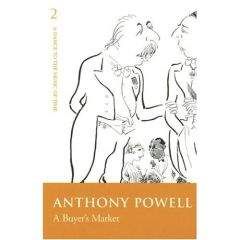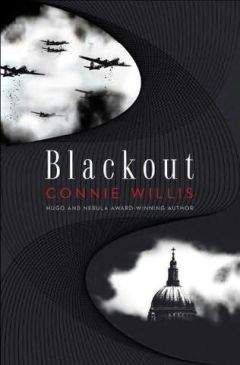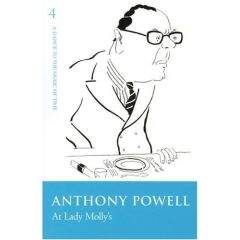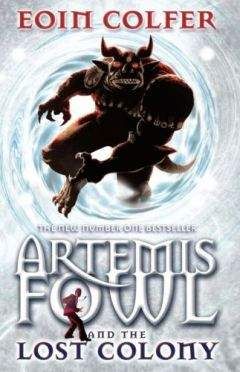W. Ainsworth - Rookwood
Luke's courage was undoubted. But his heart failed him as he heard the roar of the remorseless brute, and felt that he could not avoid an encounter with the animal. His resolution was instantly taken: he stopped short with such suddenness, that the dog, when in the act of springing, flew past him with great violence, and the time, momentary as it was, occupied by the animal in recovering himself, enabled Luke to drop on his knee, and to place one arm, like a buckler, before his face, while he held the other in readiness to grapple his adversary. Uttering a fierce yell, the hound returned to the charge, darting at Luke, who received the assault without flinching; and in spite of a severe laceration of the arm, he seized his foe by the throat, and hurling him upon the ground, jumped with all his force upon his belly. There was a yell of agony—the contest was ended, and Luke was at liberty to pursue his flight unmolested.
Brief as had been the interval required for this combat, it had been sufficient to bring the pursuers within sight of the fugitive. Hugh Badger, who from the acclivity had witnessed the fate of his favourite, with a loud oath discharged the contents of his gun at the head of its destroyer. It was fortunate for Luke, that at this instant he stumbled over the root of a tree—the shot rattled in the leaves as he fell, and the keeper, concluding that he had at least winged his bird, descended more leisurely towards him. As he lay upon the ground, Luke felt that he was wounded; whether by the teeth of the dog, from a stray shot, or from bruises inflicted by the fall, he could not determine. But smarting with pain, he resolved to wreak his vengeance upon the first person who approached him. He vowed not to be taken with life—to strangle any who should lay hands upon him. At that moment he felt a pressure at his breast. It was the dead hand of his mother!
Luke shuddered. The fire of revenge quenched. He mentally cancelled his rash oath; yet he could not bring himself to surrender at discretion, and without further effort. The keeper and his assistants were approaching the spot where he lay, and searching for his body. Hugh Badger was foremost, and within a yard of him.
"Confound the rascal," cried Hugh, "he's not half killed; he seems to breathe."
The words were scarcely out of his mouth ere the speaker was dashed backwards, and lay sprawling upon the sod. Suddenly and unexpectedly, as an Indian chief might rush upon his foes, Luke arose, dashing himself with great violence against Hugh, who happened to stand in his way, and before the startled assistants, who were either too much taken by surprise, or unwilling to draw a trigger, could in any way lay hands upon him, exerting all the remarkable activity which he possessed, he caught hold of a projecting branch of a tree, and swung himself, at a single bound, fairly over the paling.
Hugh Badger was shortly on his legs, swearing lustily at his defeat. Directing his men to skirt alongside the fence, and make for a particular part of the plantation which he named, and snatching a loaded fowling-piece from one of them, he clambered over the pales, and guided by the crashing branches, and other sounds conveyed to his quick ear, he was speedily upon Luke's track.
The plantation through which the chase now took place was not, as might be supposed, a continuation of the ring fence which Luke had originally crossed, on his entrance into the park, though girded by the same line of paling, but, in reality, a close pheasant preserve, occupying the banks of a ravine, which, after a deep and tortuous course, terminated in the declivity heretofore described as forming the park boundary. Luke plunged into the heart of this defile, fighting his way downwards, in the direction of the brook. His progress was impeded by a thick undergrowth of brier, and other matted vegetation, as well as by the entanglements thrown in his way by the taller bushes of thorn and hazel, the entwined and elastic branches of which, in their recoil, galled and fretted him, by inflicting smart blows on his face and hands. This was a hardship he usually little regarded. But, upon the present occasion it had the effect, by irritating his temper, of increasing the thirst of vengeance raging in his bosom.
Through the depths of the ravine welled the shallow stream before alluded to, and Hugh Badger had no sooner reached its sedgy margin than he lost all trace of the fugitive. He looked cautiously round, listened intently, and inclined his ear to catch the faintest echo. All was still: not a branch shook, not a leaf rustled. Hugh looked aghast. He had made sure of getting a glimpse, and, perhaps, a stray shot at the "poaching rascal," as he termed him, "in the open space, which he was sure the fellow was aiming to reach; and now, all at once he had disappeared, like a will-o'-the-wisp, or a boggart of the clough." However, he could not be far off, and Hugh endeavoured to obtain some clue to guide him in his quest. He was not long in detecting recent marks deeply indented in the mud on the opposite bank. Hugh leaped thither at once. Further on, some rushes were trodden down, and there were other indications of the course the fugitive had taken.
"Hark forward!" shouted Hugh, in the joy of his heart at this discovery; and, like a well-trained dog, he followed up, with alacrity, the scent he had opened. The brook presented still fewer impediments to expedition than the thick copse, and the keeper pursued the wanderings of the petty current, occasionally splashing into the stream. Here and there, the print of a foot on the sod satisfied him he was in the right path. At length he became aware, from the crumbling soil, that the object of his pursuit had scaled the bank, and he forthwith moderated his pace. Halting, he perceived what he took to be a face peeping at him from behind a knot of alders that over-hung the steep and shelving bank immediately above him. His gun was instantly at his shoulder.
"Come down, you infernal deer-stealing scoundrel," cried Hugh, "or I'll blow you to shivers."
No answer was returned: expostulation was vain; and fearful of placing himself at a disadvantage if he attempted to scale the bank, Hugh fired without further parley. The sharp discharge rolled in echoes down the ravine, and a pheasant, scared at the sound, answered the challenge from a neighbouring tree. Hugh was an unerring marksman, and on this occasion his aim had been steadily taken. The result was not precisely such as he had anticipated. A fur cap, shaken by the shot from the bough on which it hung, came rolling down the bank, proclaiming the ruse that had been practised upon the keeper. Little time was allowed him for reflection. Before he could reload, he felt himself collared by the iron arm of Luke.
Hugh Badger was a man of great personal strength—square-set, bandy-legged, with a prodigious width of chest, and a frame like a Hercules, and energetic as was Luke's assault, he maintained his ground without flinching. The struggle was desperate. Luke was of slighter proportion, though exceeding the keeper in stature by the head and shoulders. This superiority availed him little. It was rather a disadvantage in the conflict that ensued. The grip fastened upon Hugh's throat was like that of a clenched vice. But Luke might as well have grappled the neck of a bull, as that of the stalwart keeper. Defending himself with his hobnail boots, with which he inflicted several severe blows upon Luke's shins, and struggling vehemently, Hugh succeeded in extricating himself from his throttling grasp; he then closed with his foe, and they were locked together like a couple of bears at play. Straining, tugging, and practising every sleight and stratagem coming within the scope of feet, knees, and thighs—now tripping, now jerking, now advancing, now retreating, they continued the strife, but all with doubtful result. Victory, at length, seemed to declare itself in favour of the sturdy keeper. Aware of his opponent's strength, it was Luke's chief endeavour to keep his lower limbs disengaged, and to trust more to skill than force for ultimate success. To prevent this was Hugh's grand object. Guarding himself against every feint, he ultimately succeeded in firmly grappling his agile assailant, Luke's spine was almost broken by the shock, when he suddenly gave way; and, without losing his balance, drew his adversary forward, kicking his right leg from under him. With a crash like that of an uprooted oak, Hugh fell, with his foe upon him, into the bed of the rivulet.
Not a word had been spoken during the conflict. A convulsive groan burst from Hugh's hardy breast. His hand sought his girdle, but in vain; his knife was gone. Gazing upwards, his dancing vision encountered the glimmer of the blade. The weapon had dropped from its case in the fall. Luke brandished it before his eyes.
"Villain!" gasped Hugh, ineffectually struggling to free himself, "you will not murder me?" And his efforts to release himself became desperate.
"No," answered Luke, flinging the uplifted knife into the brook. "I will not do that, though thou hast twice aimed at my life to-night. But I will silence thee, at all events." Saying which, he dealt the keeper a blow on the head that terminated all further resistance on his part.
Leaving the inert mass to choke up the current, with whose waters the blood, oozing from the wound, began to commingle, Luke prepared to depart. His perils were not yet past. Guided by the firing, the report of which alarmed them, the keeper's assistants hastened in the direction of the sound, presenting themselves directly in the path Luke was about to take. He had either to retrace his steps, or face a double enemy. His election was made at once. He turned and fled.
For an instant the men tarried with their bleeding companion. They then dragged him from the brook, and with loud oaths followed in pursuit.
Threading, for a second time, the bosky labyrinth, Luke sought the source of the stream. This was precisely the course his enemies would have desired him to pursue; and when they beheld him take it, they felt confident of his capture.
The sides of the hollow became more and more abrupt as they advanced, though they were less covered with brushwood. The fugitive made no attempt to climb the bank, but still pressed forward. The road was tortuous, and wound round a jutting point of rock. Now he was a fair mark—no, he had swept swiftly by, and was out of sight before a gun could be raised. They reached the same point. He was still before them, but his race was nearly run. Steep, slippery rocks, shelving down to the edges of a small, deep pool of water, the source of the stream, formed an apparently insurmountable barrier in that direction. Rooted (Heaven knows how!) in some reft or fissure of the rock, grew a wild ash, throwing out a few boughs over the solitary pool; this was all the support Luke could hope for, should he attempt to scale the rock. The rock was sheer—the pool deep—yet still he hurried on. He reached the muddy embankment; mounted its sides; and seemed to hesitate. The keepers were now within a hundred yards of him. Both guns were discharged. And, sudden as the reports, with a dead splashless plunge, like a diving otter, the fugitive dropped into the water.
The pursuers were at the brink. They gazed at the pool. A few bubbles floated upon its surface, and burst. The water was slightly discoloured with sand. No ruddier stain crimsoned the tide; no figure rested on the naked rock; no hand clung to the motionless tree.
"Devil take the rascal," growled one; "I hope he har'n't escaped us, after all."
"Noa, noa, he be fast enough, never fear," rejoined the other; "sticking like a snig at the bottom o' the pond; and dang him he deserves it, for he's slipp'd out of our fingers like a snig often enough to-night. But come let's be stumping, and give poor Hugh Badger a helping hand."
Whereupon they returned to the assistance of the wounded and discomfited keeper.
| Contents |
CHAPTER IV
THE HALL
ROOKWOOD PLACE was a fine, old, irregular pile, of considerable size, presenting a rich, picturesque outline, with its innumerable gable ends, its fantastical coigns, and tall crest of twisted chimneys. There was no uniformity of style about the building, yet the general effect was pleasing and beautiful. Its very irregularity constituted a charm. Nothing except convenience had been consulted in its construction: additions had from time to time been made to it, but everything dropped into its proper place, and, without apparent effort or design, grew into an ornament, and heightened the beauty of the whole. It was, in short, one of those glorious manorial houses, that sometimes unexpectedly greet us in our wanderings, and gladden us like the discovery of a hidden treasure.
Some such ancestral hall we have occasionally encountered, in unlooked for quarters, in our native county of Lancaster, or in its smiling sister shire; and never without feelings of intense delight, rejoicing to behold the freshness of its antiquity, and the greenness of its old age. For, be it observed in passing, a Cheshire or Lancashire hall, time-honoured though it be, with its often renovated black and white squares, fancifully filled up with trefoils and quatrefoils, rosettes, and other figures, seems to bear its years so lightly, that its age, so far from detracting from its beauty, only lends it a grace; and the same mansion, to all outward appearance, fresh and perfect as it existed in the days of Good Queen Bess, may be seen in admirable preservation in the days of the youthful Victoria.
Such is Bramall—such Moreton, and many another we might instance; the former of these houses may, perhaps, be instanced as the best specimen of its class (and its class, in our opinion, is the best) to be met with in Cheshire, considered with reference either to the finished decoration of its exterior, rich in the chequered colouring we have alluded to, preserved with a care and neatness almost Dutch, or to the consistent taste exhibited by its possessor in the restoration and maintenance of all its original beauty within doors. As an illustration of old English hospitality (that real, hearty hospitality for which the squirearchy of this country was once so famous—ah! why have they bartered it for other customs less substantially English?) it may be mentioned, that a road conducted the passenger directly through the great hall of this house, literally "of entertainment," where, if he listed, strong ale, and other refreshments awaited his acceptance, and courted his stay. Well might old King, the Cheshire historian, in the pride of his honest heart, exclaim, "I know divers men, who are but farmers, that in their housekeeping may compare with a lord or baron, in some countries beyond the seas;—yea, although I named a higher degree, I were able to justify it." We have no such "golden farmers" in these degenerate days!
The mansion was originally built by Sir Ranulph de Rookwood (or, as it was then written, Rokewode), the first of the name, a stout Yorkist, who flourished in the reign of Edward IV, and received the fair domain and broad lands upon which the edifice was raised, from his sovereign, in reward for good service; retiring thither in the decline of life, at the close of the Wars of the Roses, to sequestrate himself from scenes of strife, and to consult his spiritual weal in the erection and endowment of the neighbouring church. It was of mixed architecture, and combined the peculiarities of each successive era. Retaining some of the sterner features of earlier days, the period ere yet the embattled manor-house peculiar to the reigns of the later Henries had been merged in the graceful and peaceable hall, the residence of the Rookwoods had early anticipated the gentler characteristics of a later day, though it could boast little of that exuberance of external ornament, luxuriance of design, and prodigality of beauty, which, under the sway of the Virgin Queen, distinguished the residence of the wealthier English landowner; and rendered the hall of Elizabeth, properly so called, the pride and boast of our domestic architecture.




